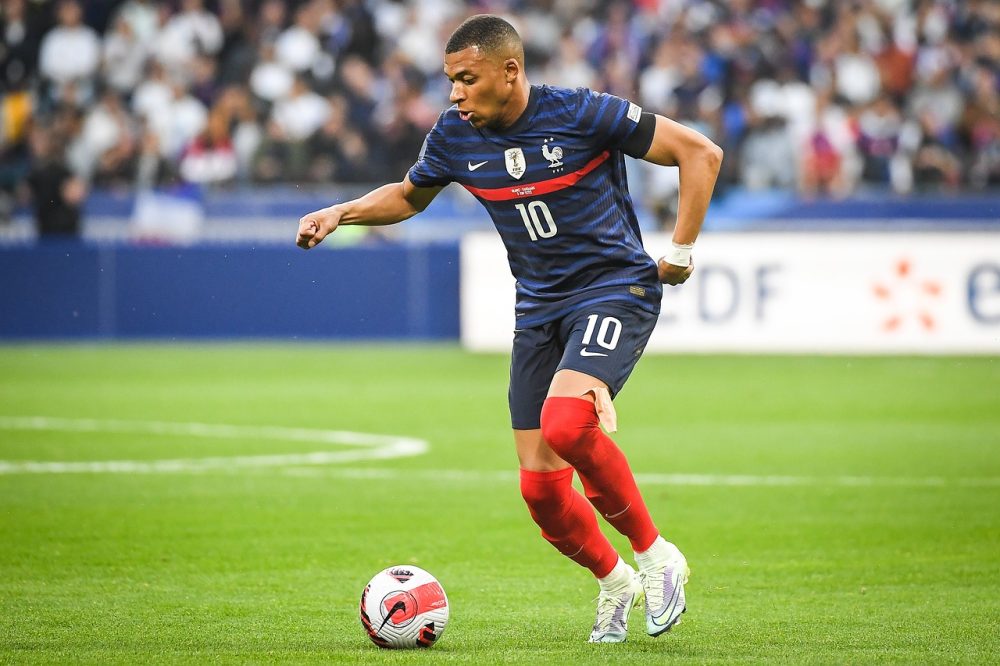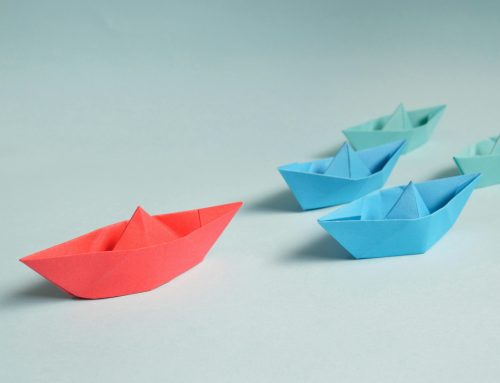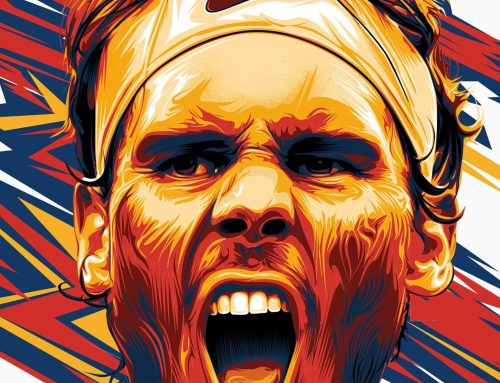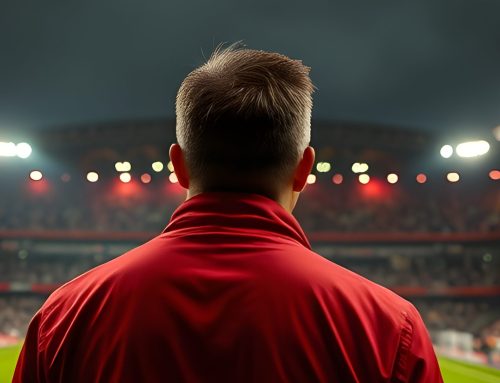The European Championships, 2020 (+1) edition, is in full swing. The fans are back, there’s football on tv nearly everyday and England fever is reaching new heights, to the point I dare say the Barmy Army are cautiously optimistic that it may indeed be coming home…
But as with any international tournament, there are players who are expected stars and there are the stars the tournament makes (think Iceland in 2016). Once such star is Kylian Mbappé, the 22-year-old French superstar and diamond of the French national squad. Much was expected from the young player, who contributed to 53 goals in 47 matches across the 2020/21 season. The stage was set…
Yet, France suffered a shock exit from the tournament at the hands of Switzerland in a penalty shoot-out, with Mbappé having his decisive kick saved. France, arguably the tournament favourites, were sent packing. Mbappé? Failed to score in any of their matches.
Mbappe isn’t the only one. Bruno Fernandes, stellar for Manchester United yet underperformed for Portugal this time around. Or how about Harry Kane? World Cup Golden Boot winner in 2018 and Premier League top scorer in 2020/21, who has been suffering a dry spell in front of goal, despite playing in familiar territory in Wembley – usually a happy hunting ground for such a prolific striker. This only changed in the 4th game of asking when he scored the second goal of England’s 2-0 win against Germany in the Round of 16.
So, what can contribute to this drop of form?
Fatigue
Major international tournaments, in football at least, occur post-season, and often within weeks of the final competitive club fixtures. For example, the Premier League concluded on May 23rd, and Euro 2020 kicked off on June 11th. In addition to this, the Champions League Final was played on May 29th.
Now not all club teams are involved in the Champions League Final, but the point I’m trying to emphasise is the little gap between the end of a gruelling season and the start of a major international tournament. This excludes the travelling to the base camp in the host location. While this edition of the European Championships is actually hosted across Europe as opposed to one country, this can also mean travelling across the continent depending on the results of the matches.
So, with the tournament taking place at the tail-end of a long and arduous club campaign and the travelling to and from matches across the continent, something has got to give. Star players, elite as they are are human too, and suffer from the effects of fatigue, albeit not as quickly as the average Sunday league player.
What must also be considered, unique to this tournament at least, is the effects of the pandemic. Some of these players will have been playing almost constantly since the re-start in June last year, something unheard of in the footballing world. Marcos Llorente, a Spanish midfielder who plays for La Liga-winning Athlético Madrid, confessed towards the end of May, that in the final league games of the season that ‘the brain wanted more, but the body said no,’ coming off the field unable to run any further.
In terms of numbers, prior to Euro 2016, players enjoyed (on average) 4.5 days of rest between games across the previous season. This has dropped to 3.9 days over the past season, with players representing Spain, England, France, and Italy, having only 3.5 days between matches.
Finally, from to The Athletic’s article on Euro 2020’s most fatigued XI (based on minutes played over the past season), seven of the eleven play in the Premier League, and the same amount have already been eliminated, with only England’s Mason Mount, Harry Maguire and Harry Kane surviving alongside Belgium’s Youri Tielemans. Surely this can make a compelling case to explain the underperforming of the top stars, including Fernandes, Mbappé and Kane?
Stage Fright
Performance anxiety, stage fright, fear of failing. Performance anxiety affects us all, and the international stage can exacerbate this. Playing for your domestic club is difficult but there is less scrutiny when your form drops as there are multiple teams within the league. However, when on international duty, media scrutiny increases and your every performance is picked apart.
After all, you’re no longer playing for your club but the national team, the perceived pinnacle of your career and with the nation’s interests at the forefront of your priorities as opposed to club success. The English media is known to scrutinise extensively, especially when considering the England national team. One only has to look back to the scrutiny on Wayne Rooney before the 2014 World Cup, who hadn’t scored at the World Cup before, despite being one of England’s top strikers for the majority of the previous decade.
Researchers have created a chain that explains why athletes may not be able to perform at their highest level (Hanin, 2010)
- Instability of technique, and the failure to deliver consistently expected results
- Sudden breakdown or loss of skill
- Habitual performance errors under competitive stress
Now it would be a fallacy to suggest football superstars have an ‘instability of technique’ or even a ‘loss’ of their skill as this is simply untrue. Footballers don’t forget how to score or play when in a tournament. But, consider the phrase ‘consistently expected results’ and ‘competitive stress’. With every missed chance placed under scrutiny, leaving the player no chance to forget past mistakes, is it that these stars are expecting too much of themselves and therefore living with the fear of failure? Or the heightened scrutiny causes anxiety which is reflected in their performances? Only these players can tell you, but it would be wrong to think that these players do not suffer from performance anxiety at all.
Expectation vs. Reality
Relating to media and fan scrutiny, maybe we set our expectations of these stars too high? In a tournament like this, teams will play the minimum of the group stage games, in this case, three. Dependent on the results, they can play a further four knockout games. Is it really unreasonable that a striker will not score in three successive games? For example, both Kane and Mbappé went three games without a goal in December and January respectively, and Mbappé never scored in the first four group games within the Champions League. These players may be the talismans of their respective teams, but maybe were setting ourselves unrealistic expectations of these players which are more optimistic and hopefully than realistic?
But what about the players who do live up to and even surpass expectations? This argument is emphasised by Cristiano Ronaldo, who, despite being eliminated with Portugal in the Round of 16, scored 5 times and assisted once in 4 matches. You could argue that this lives up to a player of Ronaldo’s stature as one of Portugal’s and indeed the world’s best players. Players like Ronaldo, who live up to the expectations placed on them, further emphasise the under-achievement of players who were expected to do well. Is it really too much to ask some of the world’s best players to perform well? Or is this an unrealistic and unfair representation of how football works?
What does a sport psychologist say about it?
Well, I’m not in a position to tell you what players like Kylian Mbappé and Harry Kane are thinking, I don’t know them and my only experience is what I hear and see from them when on tv. It wouldn’t be appropriate to offer my judgment on their mindset without a deeper understanding of them. The one key piece of advice I would offer is to allow the dust of performance to settle, then evaluate and move on as nothing can change what has happened. Live in the moment and allow yourself to enjoy the task in hand as this will allow you to play more freely to the best of your ability.
However, I can offer tips to you on how to help keep the nerves at bay, and manage expectations placed on by others.
To overcome performance anxiety:-
- Try to understand what you are actually fearing. Is it the pressure to perform? Or can you not stop thinking about what happens if something goes wrong?
- Challenge the fear. Is it justified? Remember the hours of training you have put in are to educate you and prepare you for this moment. Learn to trust your skills that you have honed in your practice.
- Learn to embrace the competition pressure as a natural part of the sport. It is normal for you to feel this pressure. Fearing this and potential disappointment will set you up to fail.
To help manage expectations:-
- Work to identify high expectations that work against you – ‘I shouldn’t make a mistake.’
- Make a list of what YOU demand of your game, not what ‘irrelevant’ others around you demand.
- Rather than focus on your expectations, replace them with more manageable goals that help you focus on your performance and role within the team – finding space, making runs in the channels. (Have a look at our other blog ‘Controlling the Controllables‘ which looks into this further!)
- Reflect on a previous performance which you feel you excelled in. How did you perform well? How did you handle the pressure? What emotions did you feel and how did you control these? How did you manage your own expectations before the performance?
Getting to know yourself and your abilities is key to improving your performances, and I have non doubt the stars that we have talked about engage in reflections of their performances very frequently. It allows you to critically evaluate how you have performed and how you can improve from past experiences. Surprisingly, learning to enjoy pressure is the key to thriving in it but to do this you have to honestly evaluate the expectations you demand of yourself and what you think others demand of you performance. If you do this, you’re well on your way to becoming the best you possibly can be.
Looking back to our stars, it will be interesting to see how next year’s World Cup will play out. Another major international tournament in consecutive years to the European Championship is unheard of and I would expect fatigue to play a part of this. Added with the climate of Qatar and it should make for an interesting mix of these above factors. Only time will tell as to how that plays out.
Now, everyone seems to know the score, but this time it feels different. Is it actually coming home…?





Leave A Comment